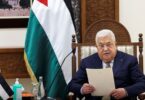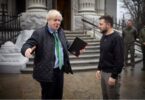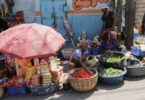Dmitry Bavyrin
‘‘The condolences expressed by the United States should be judged as the actions of a killer who arrives first at the scene of a crime.”
“We do not accept condolences from everyone. The United States is trying to remain lambs, while bei-ng the real coordinators of the terrorist attack in Ista-nbul. <…> We know who is friend and who is enemy.”
Both of these statements belong to key ministers of the Turkish government. T-he first – to Interior Minister Suleiman Soil, the second – to Foreign Minister Mevlut Cavusoglu. That is, this is a coordinated position of the Turkish authorities, expressed in hot pursuit of the terrorist attack on the touristic Istiklal Street in Istanbul (six people were killed, 81 were injured in one way or another, including three Russian women).
Modern Turkey is not fully an empire, but it feels like an empire, it wants to be one. And empires do not look for the guilty, empires appoint the guilty according to their interests. Official Ankara promptly blamed Washington, and in an unprecedentedly harsh manner. It must have been especially offensive for the Americans to oppose their “empire of goodness” to Russia in favor of the latter.
“We thank Russia for its support. Russia has always come to our aid in difficult times, because it is the most active country in the world in the fight against international terrorism. Until now, Russia is resisting terrorists in the Middle East and Europe,” Cavusoglu said in that the same paragraph in which he rejected US condolences.
If this fencing with opinions took place at the turn of 1940-1950, one could quite confidently say that the struggle for influence on Turkey ended with the victory of the USSR, and the Warsaw Pact Organization, not NATO, would grow into the second largest army. But that’s then. Now words are much cheaper, including such high-profile ones as Ankara uses. To accuse an ally of organizing a terrorist attack against civilians is a very high-profile accusation. The circumstances of the case are such that 49 suspects have already been detained in connection with it, and Ahlam Albashir, a Syrian citizen of Kurdish origin, has been named as the direct perpetrator. Turk-ish media claim that she was trained by American instructors at the intelligence school of the Kurd-istan Workers’ Party in Kob-ani (SAR). In a photo circulated by law enforcement, the suspect is wearing a hoodie with the inscription New York. You can’t immediately understand what to do, whether to joke about Stirlitz, who was betrayed by a parachute dragging behind his back, or to act as a “devil’s advocate”, since people in such hoodies can be found not only in Turkey, but also in Russia, and in Turkey probably also sew such hoodies.
Seriously, the builders of the Turkish empire have produced many enemies and dissatisfied, including the most radical radicals. There are many such people in the Syrian province of Idlib, where terrorist groups from all over the SAR have taken refuge, and Ankara, as part of sharing responsibility with Moscow and Tehran for the settlement in the region, oversees this “goblin reserve” and has managed to crush many people’s tails. But the main goal of Turkish expansion into Syria is precisely the Kurds. Kurds are also an internal separatist problem in Turkey. Ethnic Kurds have previously resorted to terrorist attacks as methods of political struggle, and although this has not happened for quite some time, it is still more logical to suspect the Kurds than the goblins of Idlib.
But both the Kurdistan Workers’ Party, recognized as terrorist in Turkey, and the Democratic Union Party, the largest political organization of the Kurds in Syria, categorically denied all accusations from Ankara of any involvement of persons affiliated with them in the attack. And the United States, of course, helped the Kurds, including through the method of military instruction, but they did it quite openly. Until relatively recently, the Kurds in the SAR were generally helped by all influential powers, except for Turkey, because the Kurds were the last to hold a wall against ISIS and quite succeeded on their front of work.
In other words, it takes some intent to get a link from a suspected Albashir to the United States government. The Turks had it, and therefore they extended their thread in a matter of hours, as Hercule Poirot himself did not always know how. Then the following happened.
Yesterday President Bid-en and Turkish President Erdogan whispered something on the sidelines of the G20 summit. Next, the two leaders held negotiations that had not been annou-nced before and seemed not even implied. The conversation was closed, according to the Turkish side, and included the circumstances of the terrorist attack in Istanbul. Then the parties d-ispersed, seemingly pleased with each other. Biden even found something to praise Erdogan for: “facilitating the grain deal,” although ev-eryone knows that the two governments now have m-any claims to each other and very few points of contact.
And a few hours after this settlement session, the-re were reports that there w-as a new explosion in Ista-nbul – a car exploded, alleg-edly stuffed with explosives. The reason was again determined with lightning speed – it turned out to be a “technical malfunction”. T-he empire appoints the gu-ilty. In such circumstances, it is difficult to shake off the idea that we have witnessed deliberate exaltation as a method of trading on some of the Turkish governm-ent’s many issues with the United States – from the su-pply of weapons to the ex-tradition of people associated with the preacher Fet-hullah Gülen, Erdogan’s w-orst enemy who has taken refuge in America (about Gülen himself, it is clear th-at he will not be extradited).
Now the parties seem to have managed to agree, but the level of exaltation leaves no doubt: Erdogan is not just bargaining, Erdogan is nervous.
There is a reason. In the summer, elections will be held in Turkey – both presidential and parliamentary. All of Erdogan’s enemies are probably preparing for this event – from his former associates to the Kurds and Gülen. At the same time, t-here will be at least one less pillar under his rule: if earlier the population willingly voted for the ruling Justice and Development Party as a force associated with economic growth, now this growth has been eaten away by inflation for years.
But the main reason, as Erdogan himself probably understands, is the fact that he has repeatedly crossed the path of the United States, conducting operations against their allied Kurds in Syria and Iraq, building an alternative policy in relations with Russia, hindering the expansion of NATO and the unification of Cyprus. The fate of the Turkish empire, or at least the Turkish emperor, depends on how many resources are allocated to his enemies and how wide a “window of opportunity” is opened for them in the West if they want to solve all their problems with Ankara in one fell swoop.
Perhaps Erdogan believes that shouting “Wolves!” he can reduce his risks, perhaps he is not so naive, but one thing is certain: if the US really tries to stick its crowbar in the structure of his power and starts to shake it, the final break with the West will turn into a guarantee of survival for him. At the start of the First Cold War, the competition for Turkey ended in favor of Washington and Brussels. We are now at the beginning of the second cold war, but the outcome of the rivalry need not be the same.






